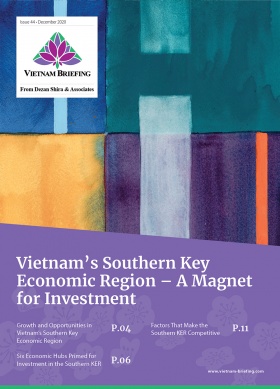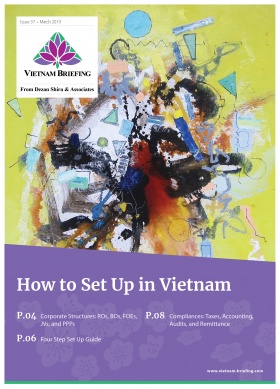Vietnam Issues New Information Disclosure Norms: Circular 96
- Vietnam issued Circular 96 on information disclosure activities for businesses in the securities market, which took effect in January 2021.
- The circular is broader in scope compared to previous norms and applies to a wide range of entities.
- Clarity surrounding information disclosure norms is a positive step towards attracting foreign investment in Vietnam’s securities industry.
Vietnam’s Ministry of Finance recently issued Circular 96/2020/TT-BTC (Circular 96), which regulates information disclosure activities of certain business entity categories in the securities industry. The new regulation replaces Circular 155/2015/TT-BTC, which was released in 2015. Circular 96 took effect in January 2021.
The circular provides guidance on the content, medium, periodicity, and principles of information disclosure on Vietnam’s stock market. In 2019, the State Securities Commission (SSC) noted that several foreign-owned firms had expressed their intent to list on the domestic stock market. For instance, Taiwan based Fortress Tools had planned on going public in 2019. However, there was a lack of regulatory clarity surrounding this activity.
The new information disclosure norms, given their central role in listing and regulating firms, could be a positive step towards expanding the regulatory infrastructure in Vietnam’s financial markets.
Scope and content: Circular 96
Compared to the 2015 circular, the scope of disclosure has been broadened. According to Article 2 of the circular, the rules apply to:
- Public companies;
- Entities that list corporate bonds;
- Securities companies and branches of foreign securities companies or foreign fund management companies in Vietnam;
- Public securities investment companies; and
- IPO issuers.
Mandatory disclosures of personal information include identity cards, passport details, contact address, permanent residence address, phone number, email, bank account numbers, and trading account numbers.
Foreign businesses in which investors own more than half of the charter capital can only disclose information after obtaining approval from the investors.
For business entities – they are responsible for disclosing transaction codes of overseas investors, minutes of annual general meetings, audited financial information, securities, and other disclosures, which vary by category of business entity.
Legal representatives are exclusively responsible for executing information disclosure compliance. The circular lists multiple mediums through which disclosures can be executed. This includes information disclosure systems of SSC and stock exchanges, local media as prescribed by the law, and the website of the organization itself.
Under Article 7 (2), organizations subject to this disclosure must set up websites in compliance with the guidelines mentioned in the circular. Periodic and extraordinary information are required to be stored on these websites for a minimum of five years. The responsibility for storing and securing disclosure related information rests with the organization receiving the disclosure.
Organizations in which foreign investors own more than 50 percent of the charter capital are required to disclose information under the investor’s approval. Bank accounts of overseas investors, transaction codes of foreign investors, are also subject to mandatory disclosure.
The disclosures also cover extraordinary events. An example of such an event is when foreign bank accounts of the disclosure subject are frozen and subsequently unblocked. Extraordinary information must be disclosed within 24 hours of the occurrence of an event.
Foreign investment in Vietnam’s securities industry
Since 2007, owing to Vietnam’s compliance with the WTO Protocol on Accession, the number of foreign firms’ in the securities markets has risen. In the same year, Morgan Stanley announced a joint venture (JV) securities firm with Vietnam’s State Capital Investment Corporation.
A recent report surveyed 81 securities firms and found that 40 of these had ownership structures dominated by foreign capital. Foreign investors in the securities trading business include Citibank, Nikko Cordial, and SMB Securities.
In particular, South Korean securities firms have dominated the market since 2019 when a series of mergers and acquisitions were undertaken. Firms such as KB Securities Vietnam, Mirae Asset Securities Vietnam and KIS Vietnam Securities have South Korean parent companies, which provides them the ability to scale and increase their charter capital.
As the regulatory structure surrounding the securities industry takes shape, it is likely that foreign interest in Vietnam rises over the medium term.
About Us
Vietnam Briefing is produced by Dezan Shira & Associates. The firm assists foreign investors throughout Asia from offices across the world, including in Hanoi and Ho Chi Minh City. Readers may write to vietnam@dezshira.com for more support on doing business in Vietnam.
- Previous Article Scioglimento di un UR in Vietnam
- Next Article Optimizing Investments in Vietnam’s Conditional Sectors







